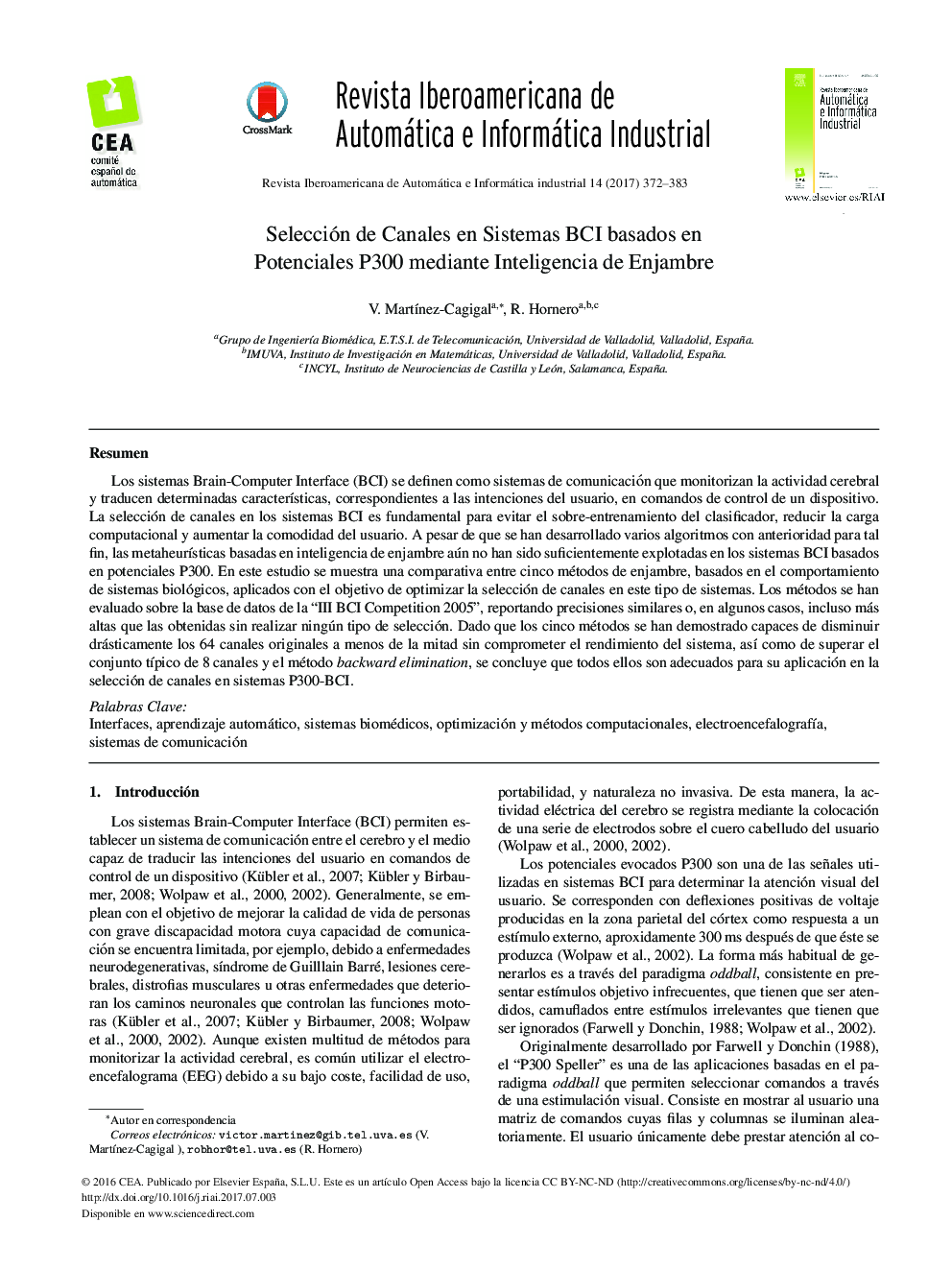| Article ID | Journal | Published Year | Pages | File Type |
|---|---|---|---|---|
| 8050490 | Revista Iberoamericana de Automática e Informática Industrial RIAI | 2017 | 12 Pages |
Abstract
Brain-Computer Interfaces (BCI) are direct communication pathways between the brain and the environment that translate certain features, which correspond to users' intentions, into device control commands. Channel selection in BCI systems is essential to avoid over-fitting, to reduce the computational cost and to increase the users' comfort. Although several algorithms have previously developed for that purpose, metaheuristics based on swarm intelligence have not been exploited yet in P300-based BCI systems. In this study, a comparative among five different swarm methods, based on the behavior of biological systems, is shown. Those methods have been applied in order to optimize the channel selection procedure in this kind of systems, and have been tested with the 'III BCI Competition 2005' database II. Results show that the five methods can achieve similar or even higher accuracies than that obtained without performing any channel selection procedure. Owing to the fact that all the applied methods are able to drastically reduce the required number of channels without compromising the system performance, as well as to overcome the common 8-channel set and the backward elimination algorithm, we conclude that all of them are suitable for use in the P300-BCI systems channel selection procedure.
Keywords
Related Topics
Physical Sciences and Engineering
Engineering
Control and Systems Engineering
Authors
V. MartÃnez-Cagigal, R. Hornero,
